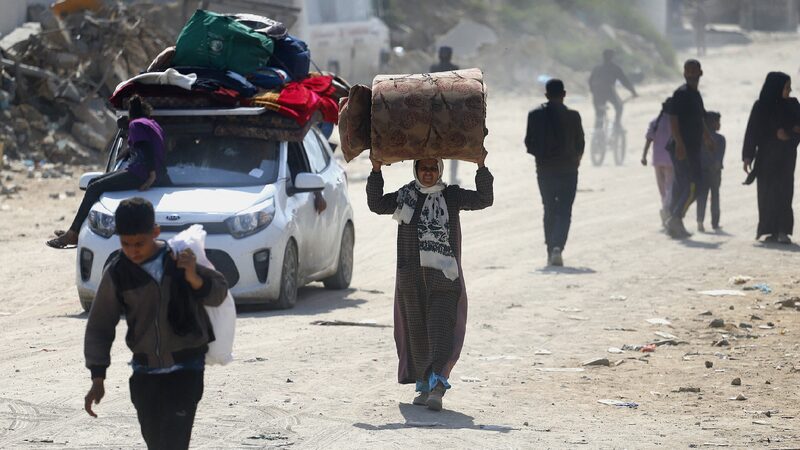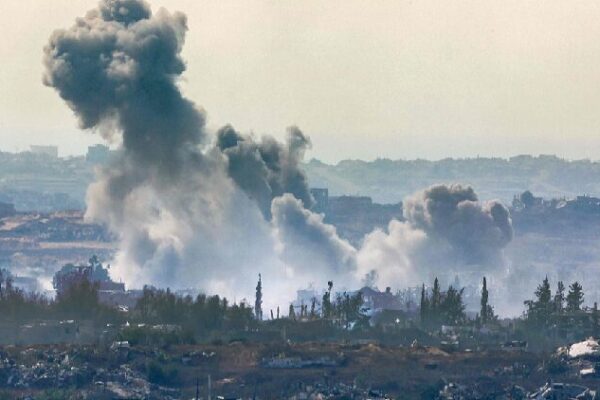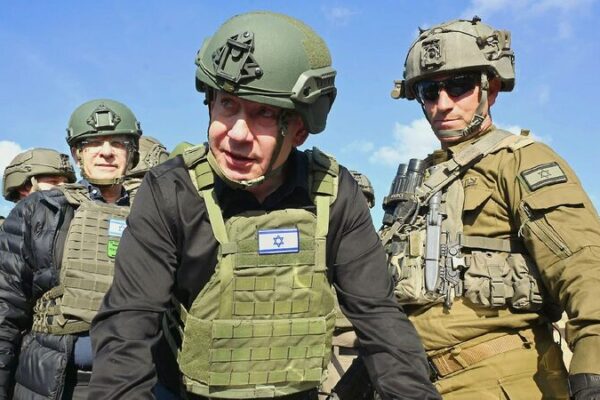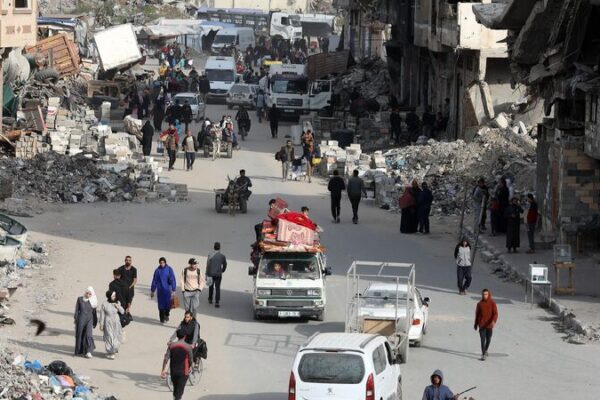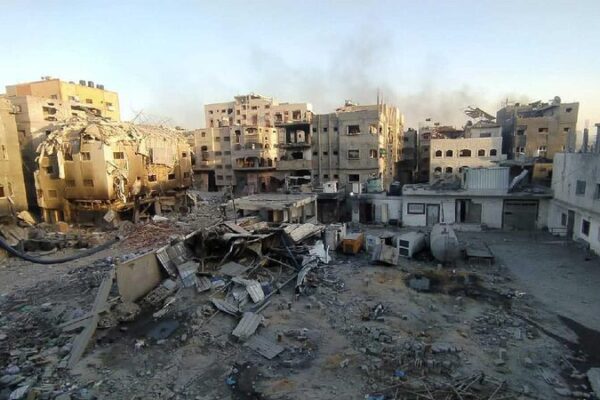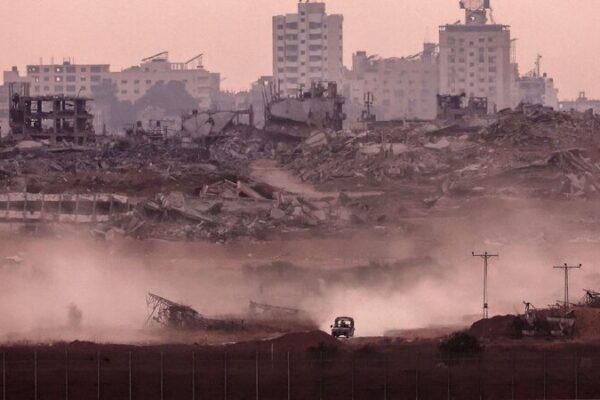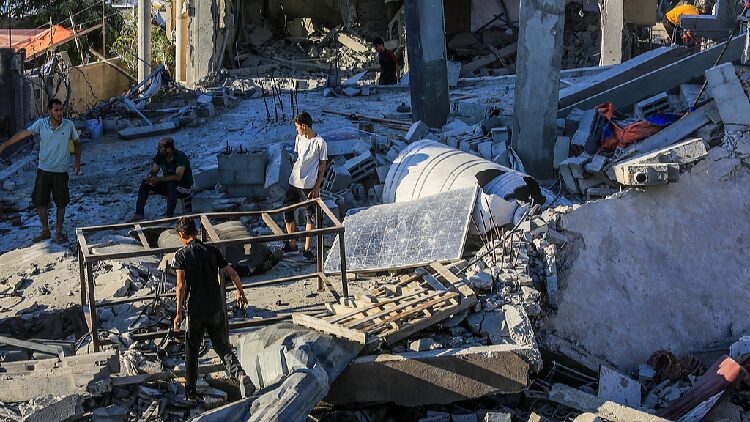Israeli Prime Minister Benjamin Netanyahu declared on Tuesday that Israel will intensify its assaults on the Gaza Strip, stating that ceasefire negotiations will continue “only under fire.”
“We have returned to fighting with full force,” Netanyahu said in a televised address. “From now on, Israel will act against Hamas with increasing intensity.”
Netanyahu emphasized that Hamas “has already felt the weight of our might in the past 24 hours” and warned, “This is just the beginning.”
He added, “We will continue fighting to achieve all the war’s objectives: freeing all our hostages, eliminating Hamas, and ensuring that Gaza will no longer pose a threat to Israel. We are reshaping the Middle East.”
Netanyahu claimed that the surprise overnight attack was launched because Hamas rejected Israeli and U.S. proposals to extend the first phase of the ceasefire deal that ended on March 1. The proposals demanded prolonging the ceasefire and Hamas freeing additional hostages.
“Military pressure is a necessary condition for the release of additional hostages,” he stated, dismissing media reports suggesting that the renewed assault was aimed at ensuring his political survival.
Israeli Foreign Minister Gideon Sa’ar indicated that the renewed offensive is not “a one-day operation.” Speaking to the American Israel Public Affairs Committee (AIPAC) in Jerusalem, Sa’ar said the decision to launch the attacks was made “several days ago.” He confirmed that officials from U.S. President Donald Trump’s administration “were informed before the attacks and supported it.”
According to the Israeli military, Israeli forces launched about 80 airstrikes across Gaza early Tuesday within approximately 10 minutes, killing more than 400 people and shattering a fragile ceasefire that took effect on January 19.
Niu Xinchun, a professor at the China-Arab Research Institute of Ningxia University, told China Media Group (CMG) that the fundamental reason for Israel’s military strike is its desire to eliminate Hamas. He predicted that the crisis in the Red Sea region may expand further following this strike.
Hamas announced on Tuesday evening that it remains in constant contact with mediators and is engaging responsibly with all proposals aimed at halting the Israeli “aggression” and lifting the blockade on Gaza.
In a press statement, Hamas spokesman Abdul Latif al-Qanou said the movement has not rejected the proposal put forward by U.S. President Donald Trump’s envoy to the Middle East, Steve Witkoff, but has responded positively to it. He accused Netanyahu of resuming the war to derail the agreement.
“Israel has tightened its blockade by closing crossings, preventing the entry of humanitarian aid, and refusing to enter the second phase of negotiations to overturn the agreement and escalate the conflict,” al-Qanou said.
He added, “Hamas is committed to maintaining the agreement and will continue to engage flexibly with mediators to prevent further aggression against the Palestinian people and hold the occupation accountable for its obligations.”
After Israel’s large-scale military strike, the ceasefire negotiations are likely to break down, Niu told CMG. “Israel hopes that after this military strike, Hamas will surrender and return to the negotiating table, possibly agreeing to the so-called transition plan proposed by the United States and Israel, but the probability of this happening is low,” he said.
The Israeli airstrikes have been widely condemned by the international community.
Egypt, Kuwait, and Bahrain warned on Tuesday that the renewed Israeli attacks on Gaza threaten regional peace and stability.
During separate phone conversations, Egyptian President Abdel-Fattah al-Sisi, Emir of Kuwait Sheikh Mishal Al-Ahmad Al-Jaber Al-Sabah, and King of Bahrain Hamad bin Isa Al Khalifa condemned Israel’s resumption of hostilities in Gaza, which has resulted in hundreds of civilian casualties, including children and women.
The leaders affirmed that the Israeli attacks constitute a flagrant violation of international law and the ceasefire agreement that had been reached. They stressed the need for the international community to push for an immediate ceasefire, implement the two-state solution, and establish a Palestinian state along the 1967 borders with East Jerusalem as its capital.
The United Arab Emirates Foreign Ministry stated on Tuesday that continued Israeli airstrikes on civilian and residential areas in Gaza could lead to broader instability in the enclave and pose a risk of escalating violence across the region.
The ministry called for preventing the loss of more innocent lives, stopping punitive measures affecting civilians, and halting the escalation. It urged the international community to “push for a renewed ceasefire” and for the sustained and unhindered delivery of humanitarian aid to those in need in Gaza.
As tensions escalate and the death toll rises, the international community watches closely, urging restraint and a return to negotiations to prevent further loss of life and regional instability.
Reference(s):
Netanyahu: Gaza ceasefire talks to continue 'only under fire'
cgtn.com
